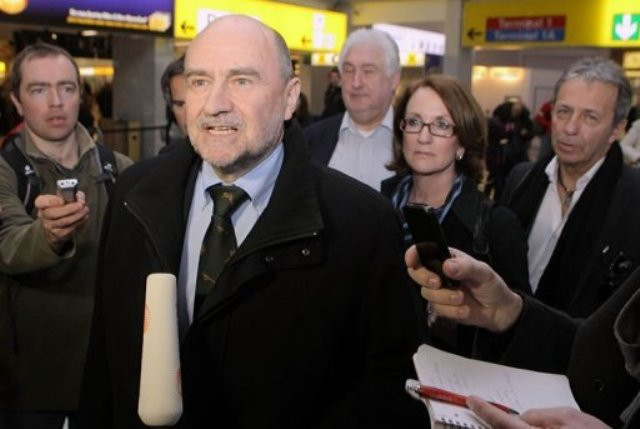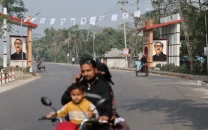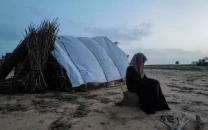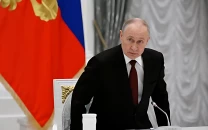IAEA says no breakthrough on Iran visit
The high-ranking IAEA team led by Herman Nackaerts was due back in Vienna on Wednesday.

"Intensive efforts were made to reach agreement on a document facilitating the clarification of unresolved issues in connection with Iran's nuclear programme," the International Atomic Energy Agency (IAEA) said in a statement.
"Unfortunately, agreement was not reached on this document."
The team requested access both during this visit and during a first trip in late January to the Parchin military site, near Tehran, where it believes explosives testing was carried out, but Iran "did not grant permission," it said.
"It is disappointing that Iran did not accept our request to visit Parchin during the first or second meetings," IAEA Director General Yukiya Amano said in the statement.
"We engaged in a constructive spirit, but no agreement was reached."
The statement gave no further details and did not say whether another visit was planned.
Iran's envoy to the IAEA, Ali Asghar Soltanieh, was quoted by the Iranian news agency ISNA as saying the talks had been intensive and covered "cooperation and mutual understanding between Iran and the IAEA."
"These negotiations will continue in the future," Soltanieh said.
The high-ranking IAEA team led by Herman Nackaerts, the Vienna-based agency's Belgian chief inspector and its Argentine number two Rafael Grossi, was due back in Vienna later on Wednesday.
The visit was aimed, the IAEA had said, at clarifying all "outstanding substantive issues" surrounding Tehran's nuclear programme, in particular what it called "possible military dimensions."
The trip was also seen as an important precursor to a possible resumption of talks between Iran and the P5+1 powers, the United States, China, Russia, France, Britain and Germany, which broke down in Turkey 13 months ago.
A watershed report from the IAEA in November said that Iran had carried out activities in a number of areas "relevant to producing" a nuclear weapon.
The report said that its information suggested that Iran tested in "a large ... containment vessel" at Parchin high explosives in experiments thought to be relevant to designing a ballistic missile payload.
Since the report's publication, the United States and the European Union have ramped up sanctions on Iran's oil sector, and speculation has grown that Iran's arch rival Israel might launch air strikes, possibly even this year.
Iran has threatened to close the Strait of Hormuz, has announced the halt of oil sales to Britain and France -- sending the price of oil soaring -- and has defiantly trumpeted advances in its nuclear programme.
Iran, whose economy has been hit hard by the recent ramping up of sanctions, denies wanting nuclear weapons, insisting its programme, including the enrichment of uranium, is for producing energy and treating cancer patients.
The UN Security Council has imposed four rounds of sanctions on Iran because of Tehran's repeated failure to declare nuclear sites and materials to the IAEA, calling on it to suspend uranium enrichment.
The IAEA delegation's findings are likely to be included in a report by Amano expected to be circulated to diplomats in Vienna later this week, which will be presented to the IAEA's 35-nation board of governors on March 5.
The report will also be closely watched for what progress Iran is making fitting out its new enrichment facility inside a mountain bunker at Fordo, amid speculation it is preparing to install thousands of new centrifuges there.
The IAEA said in January Iran had begun to enrich uranium to 20 percent at the site, taking it significantly closer to the 90-percent purity uranium needed to go into a nuclear bomb.
Fordo working at full speed with advanced technology would in theory slash the time needed for Iran to enrich its current stockpile of 3.5-percent uranium to weapons grade.



















COMMENTS
Comments are moderated and generally will be posted if they are on-topic and not abusive.
For more information, please see our Comments FAQ